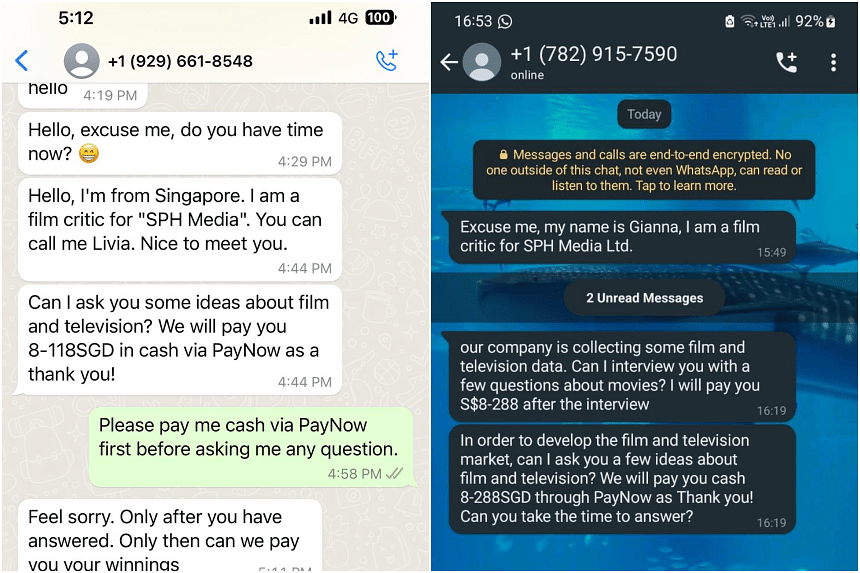
SINGAPORE – Scammers are posing as SPH Media film critics on messaging platform WhatsApp, pretending to seek “ideas about film and television”. These messages are fake and part of a scam.
In messages seen by The Straits Times, scammers claiming to be film critics from SPH Media promised rewards of between $8 and $288 to users who answered their questions on WhatsApp.
The scammers, who called themselves Gianna or Livia, said they were collecting “film and television” data.
An SPH Media spokeswoman said on Friday it was aware that scammers were impersonating its staff on messaging apps.
“SPH Media will not ask for sensitive information, such as passwords or financial details, or request for payment through messaging apps like WhatsApp,” said the spokeswoman.
“We encourage members of the public to always exercise caution and not click on URL links, or scan QR codes in these unsolicited messages.”
In a Facebook post on Nov 17, an anonymous user shared a screengrab of their conversation with “Livia from SPH Media”. In the comments, several other users said they had also received similar messages from bogus SPH Media staff.
SPH Media owns a range of titles, including ST, Berita Harian and fashion magazine Harper’s Bazaar.
The police have issued warnings over such “survey” scams.
In a Sept 19 advisory, police said at least $96.8 million have been lost to such scams between January and September this year, with at least 6,600 known victims.
Typically, scammers entice victims by giving them commission for completing simple surveys before offering them fake job opportunities.
Much like this “film and TV” survey scam, victims would receive unsolicited WhatsApp texts asking them questions about an innocuous topic.
Upon answering, victims would receive a small commission. Once victims are reeled in, scammers would ask them to join another WhatsApp or Telegram group to perform “more rewarding tasks”, said the police in its advisory.
These usually involve transferring money to bank accounts provided by scammers. In some cases, scammers would instruct victims to provide an advance payment of large sums of their own money.
The victims would realise they were duped when they failed to withdraw their commission, or when the scammers could no longer be contacted.
